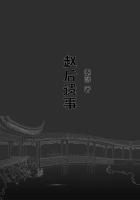I thought it was only an affair of gallantry,It seems that it is an affair of passion!'
It was a passion,in fact.
Marius was on the high road to adoring his father.
At the same time,his ideas underwent an extraordinary change.The phases of this change were numerous and successive.
As this is the history of many minds of our day,we think it will prove useful to follow these phases step by step and to indicate them all.
That history upon which he had just cast his eyes appalled him.
The first effect was to dazzle him.
Up to that time,the Republic,the Empire,had been to him only monstrous words.
The Republic,a guillotine in the twilight;the Empire,a sword in the night.
He had just taken a look at it,and where he had expected to find only a chaos of shadows,he had beheld,with a sort of unprecedented surprise,mingled with fear and joy,stars sparkling,Mirabeau,Vergniaud,Saint-Just,Robespierre,Camille,Desmoulins,Danton,and a sun arise,Napoleon.
He did not know where he stood.
He recoiled,blinded by the brilliant lights.Little by little,when his astonishment had passed off,he grew accustomed to this radiance,he contemplated these deeds without dizziness,he examined these personages without terror;the Revolution and the Empire presented themselves luminously,in perspective,before his mind's eye;he beheld each of these groups of events and of men summed up in two tremendous facts:the Republic in the sovereignty of civil right restored to the masses,the Empire in the sovereignty of the French idea imposed on Europe;he beheld the grand figure of the people emerge from the Revolution,and the grand figure of France spring forth from the Empire.He asserted in his conscience,that all this had been good.What his dazzled state neglected in this,his first far too synthetic estimation,we do not think it necessary to point out here.It is the state of a mind on the march that we are recording.Progress is not accomplished in one stage.
That stated,once for all,in connection with what precedes as well as with what is to follow,we continue.
He then perceived that,up to that moment,he had comprehended his country no more than he had comprehended his father.
He had not known either the one or the other,and a sort of voluntary night had obscured his eyes.
Now he saw,and on the one hand he admired,while on the other he adored.
He was filled with regret and remorse,and he reflected in despair that all he had in his soul could now be said only to the tomb.Oh!if his father had still been in existence,if he had still had him,if God,in his compassion and his goodness,had permitted his father to be still among the living,how he would have run,how he would have precipitated himself,how he would have cried to his father:
'Father!
Here I am!
It is I!
I have the same heart as thou!
I am thy son!'
How he would have embraced that white head,bathed his hair in tears,gazed upon his scar,pressed his hands,adored his garment,kissed his feet!
Oh!
Why had his father died so early,before his time,before the justice,the love of his son had come to him?
Marius had a continual sob in his heart,which said to him every moment:
'Alas!'
At the same time,he became more truly serious,more truly grave,more sure of his thought and his faith.
At each instant,gleams of the true came to complete his reason.
An inward growth seemed to be in progress within him.
He was conscious of a sort of natural enlargement,which gave him two things that were new to him——his father and his country.
As everything opens when one has a key,so he explained to himself that which he had hated,he penetrated that which he had abhorred;henceforth he plainly perceived the providential,divine and human sense of the great things which he had been taught to detest,and of the great men whom he had been instructed to curse.
When he reflected on his former opinions,which were but those of yesterday,and which,nevertheless,seemed to him already so very ancient,he grew indignant,yet he smiled.
From the rehabilitation of his father,he naturally passed to the rehabilitation of Napoleon.
But the latter,we will confess,was not effected without labor.
From his infancy,he had been imbued with the judgments of the party of 1814,on Bonaparte.
Now,all the prejudices of the Restoration,all its interests,all its instincts tended to disfigure Napoleon.It execrated him even more than it did Robespierre.
It had very cleverly turned to sufficiently good account the fatigue of the nation,and the hatred of mothers.
Bonaparte had become an almost fabulous monster,and in order to paint him to the imagination of the people,which,as we lately pointed out,resembles the imagination of children,the party of 1814 made him appear under all sorts of terrifying masks in succession,from that which is terrible though it remains grandiose to that which is terrible and becomes grotesque,from Tiberius to the bugaboo.
Thus,in speaking of Bonaparte,one was free to sob or to puff up with laughter,provided that hatred lay at the bottom.
Marius had never entertained——about that man,as he was called——any other ideas in his mind.They had combined with the tenacity which existed in his nature.There was in him a headstrong little man who hated Napoleon.
On reading history,on studying him,especially in the documents and materials for history,the veil which concealed Napoleon from the eyes of Marius was gradually rent.
He caught a glimpse of something immense,and he suspected that he had been deceived up to that moment,on the score of Bonaparte as about all the rest;each day he saw more distinctly;and he set about mounting,slowly,step by step,almost regretfully in the beginning,then with intoxication and as though attracted by an irresistible fascination,first the sombre steps,then the vaguely illuminated steps,at last the luminous and splendid steps of enthusiasm.















